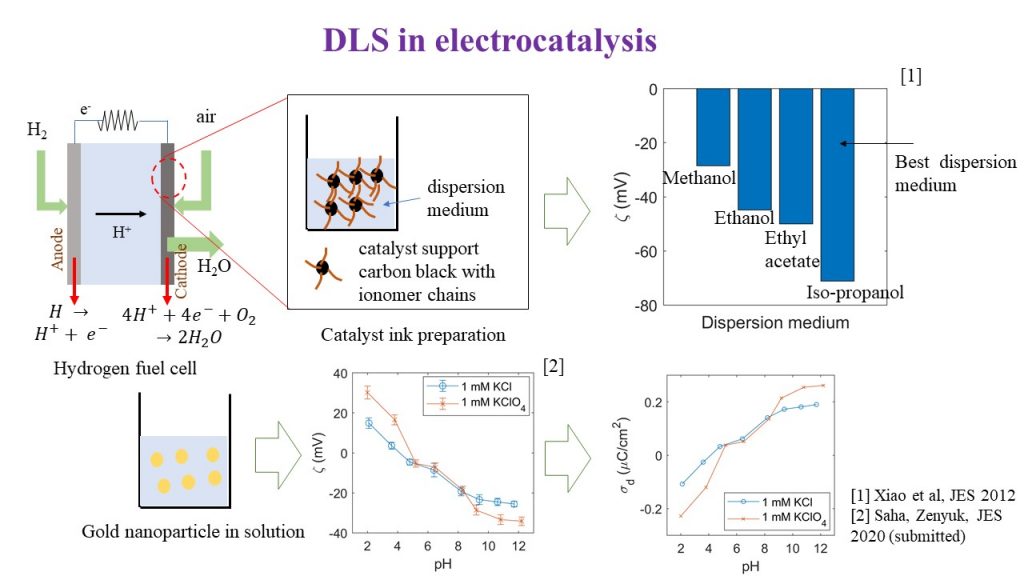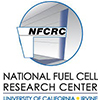Join presenters Prof. Iryna Zenyuk and Prantik Saha and our sponsor HORIBA Scientific at 1300h ET on March 16, 2021, for a webinar discussing how DLS helps prepare catalyst inks with high electrochemical performance.


Description
Dynamic light scattering (DLS) is a common technique to determine size and zeta potential of colloidal particles in a suspension. It is used to determine relevant properties of the catalyst inks used to fabricate electrodes of electrochemical energy conversion devices, such as fuel cells and electrolysers. These properties include the surface charge of catalyst and catalyst supports, ink stability, catalyst-ionomer interaction, etc. In this webinar, Prof. Iryna Zenyuk and Prantik Saha discuss how DLS helps prepare catalyst inks with the high electrochemical performance required for optimal design of these systems, and thus, helps build a zero-carbon emissions society.
Benefits of attending the webinar
Webinar attendees:
- Learn the application of DLS in electrochemical energy conversion and storage systems, such as fuel cells and electrolysers;
- Understand how surface charge, ionic conductivity, and interaction with ionomers elucidate interfacial properties of catalyst and catalyst supports;
- Discover the role of DLS in determining the stability of catalyst ink used to fabricate the electrodes in these systems;
- Identify the equivalence of DLS and other techniques of zeta potential measurement, such as electrokinetic streaming current/streaming potential.
About the presenters
Iryna Zenyuk is Associate Professor of Chemical and Biomolecular Engineering at the University of California, Irvine, US. She has a joint appointment as Associate Professor in the Mechanical and Aerospace Engineering Department and is Associate Director of the National Fuel Cell Research Center (NFCRC). Prof. Zenyuk holds a PhD from Carnegie Mellon University, US. Her graduate work focused on the fundamental understanding of meso-scale interfacial transport phenomena and electric double layers in fuel cells. As a postdoc in Dr. Adam Weber’s group at Lawrence Berkeley National Laboratory (LBNL) from 2014-2015, Prof. Zenyuk investigated water-management in proton-exchange membrane fuel cells (PEFCs) using X-ray CT (computed tomography) and modeling. She joined Tufts University, US, as Assistant Professor from 2015-2018 and moved to the University of California, Irvine in 2018. Her mission at NFCRC is to accelerate and facilitate the development and deployment of fuel cell technology and fuel cell systems.
Prof. Zenyuk has published more than 40 journal articles on electrochemical technologies and given more than 60 invited presentations. Her passion is to enable renewable energy technologies and ensure that society advances toward a zero-emissions electric grid.
Prantik Saha joined Prof. Iryna Zenyuk’s lab at the University of California, Irvine, US, in 2017 as a PhD student researcher. Saha’s thesis focuses on understanding aspects of electrochemical double layer at electrocatalyst-electrolyte interface, for which he developed a new method combining electrochemistry and electrokinetics. He uses dynamic light scattering (DLS) occasionally for his thesis research. Along with research in zero-carbon energy systems, he is passionate about networking activities at the professional level to develop the business of these technologies. Saha received his BSc in Physics from the University of Calcutta, India, and MS in Physics from Tufts University, US.





